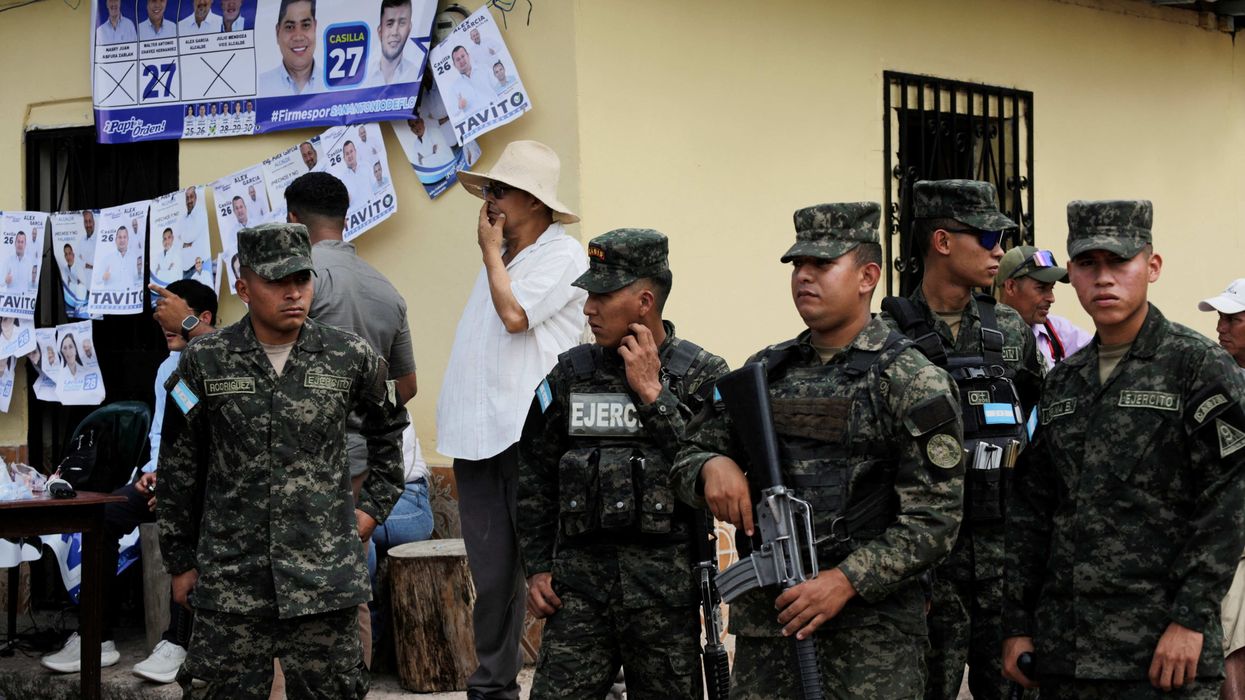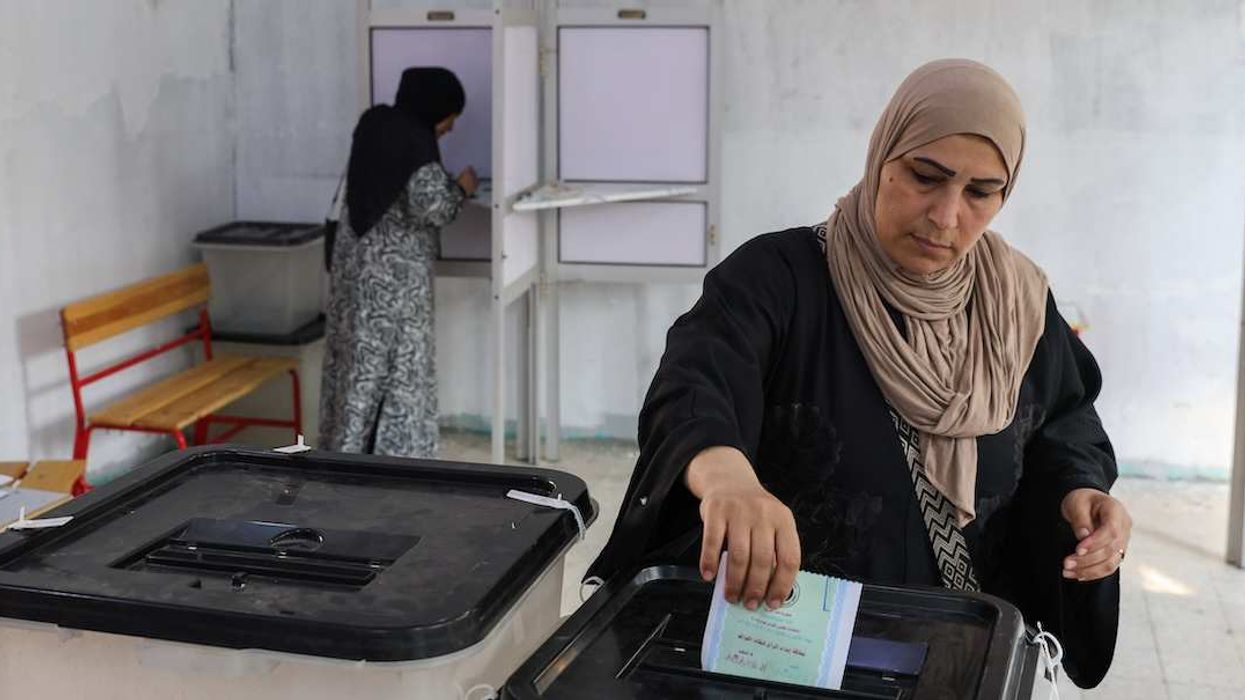Hi there,
Happy panj-shanbe, (that’s “Thursday” if you’re in Tajikistan or Iran).
In today’s edition:
- Sloppy reporting makes Israel-Hamas situation even worse
- Kosovo and Serbia make fresh bid for peace
- The US House speaker saga
- And a special look at how the Israel-Palestine conflict became a “holy war”
- Plus: GZERO was at the US Capitol yesterday when a protest broke out. Check out it here.
Enjoy and thanks for reading,
-The GZERO Daily crew
What is Palestinian Islamic Jihad?
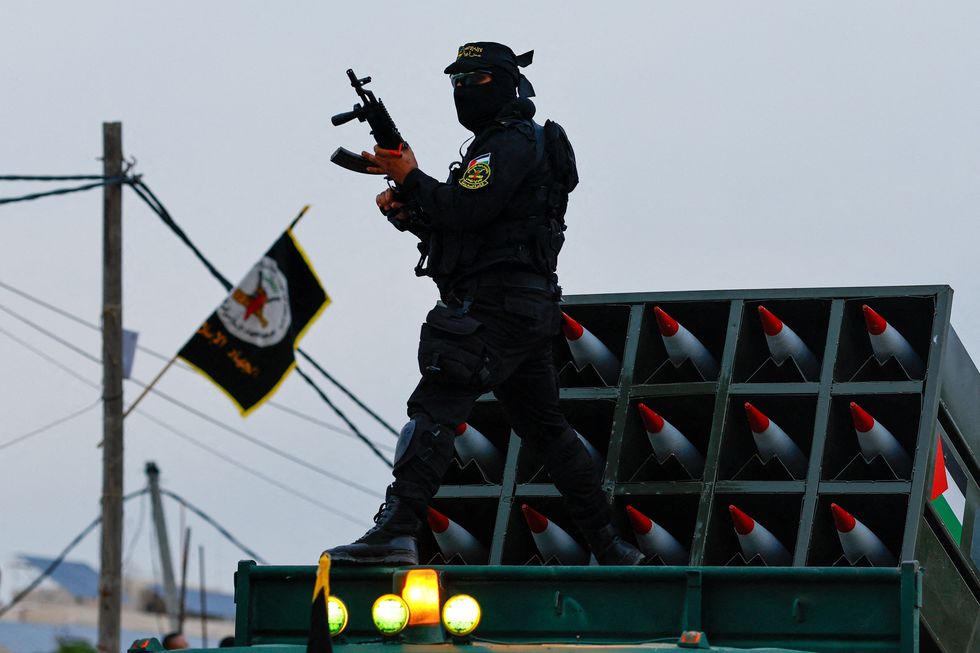 Alex Kliment
Alex KlimentThe Israeli and US governments on Wednesday claimed to have preliminary intelligence showing that the blast that Hamas authorities said had killed several hundred people at a Gaza hospital on Tuesday night was caused by an errant rocket fired by Palestinian Islamic Jihad (PIJ).
What is Palestinian Islamic Jihad? It is an older, but smaller, relative of Hamas. Like Hamas, PIJ is a jihadist organization that seeks to destroy Israel and create an Islamic society in historic Palestine. Based primarily in Gaza, it counts on strong backing from Iran and is considered a terrorist organization by the US, EU, and Israel.
Where did it come from? The organization was founded in the early 1980s as an offshoot of the Egypt-based Muslim Brotherhood, during a period when the success of the 1979 Iranian revolution boosted the power and appeal of Islamist politics across the region. Like Hamas, it was an immediate rival to secular movements, like Yasser Arafat’s Palestine Liberation Organization, which had dominated the Palestinian national movement until then.
What does it do? In the 1990s, PIJ began a campaign of suicide bombings against Israeli targets and has amassed a large cache of rockets that it periodically fires into Israel from Gaza.
How does PIJ compare to Hamas? PIJ is much smaller, counting only about 1,000 men. And unlike Hamas, PIJ is focused exclusively on armed struggle — it has neither a political wing nor an extensive network of social services.
Do PIJ and Hamas get along? They were rivals in the 1980s, but their shared goals and motivations brought them into strategic alignment from the 1990s onwards. PIJ, lacking a political wing, has sometimes been more risk-averse than Hamas in confronting Israel. In 2018, the two organizations issued a joint statement pledging to work together.What We’re Watching: Gaza & the Twitter effect, a US House divided, Kosovo peace talks
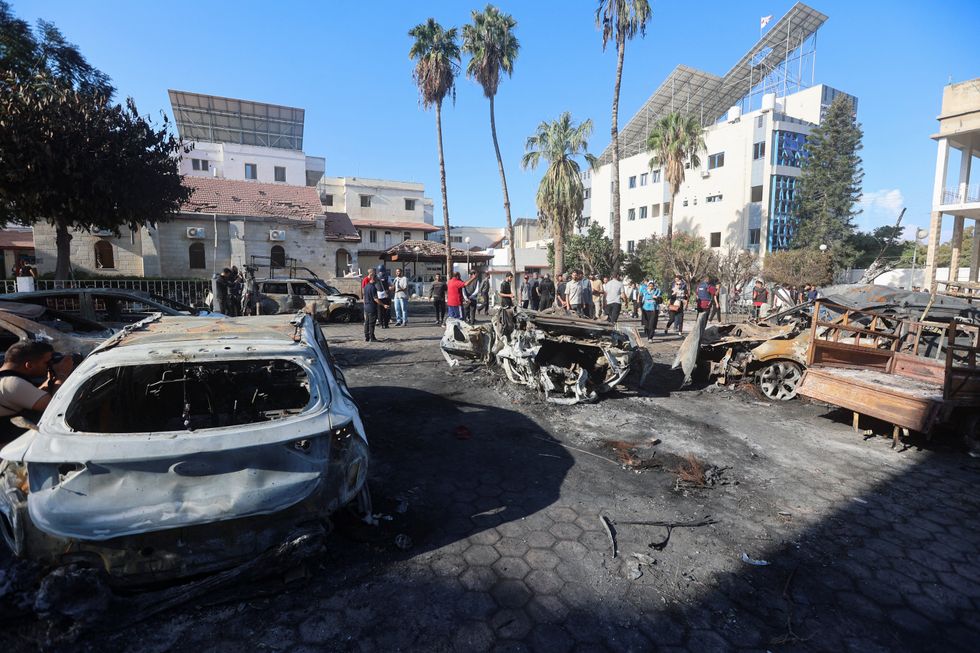 Matthew Kendrick
Matthew KendrickLessons from Gaza: Think before you Tweet
Hours before US President Joe Biden set off for his trip to Israel late Tuesday, social media erupted with videos purporting to show an aerial strike on the Al-Ahli Hospital in Gaza City. The virtual battlelines formed immediately, with Hamas saying Israel had deliberately bombed the facility and killed 500 people.
Major media outlets published stories repeating the claims before Israel came out with its own version of events: A misfired terrorist rocket hit the hospital. Then came the rush to adjust those headlines and news alerts, but events had already moved well beyond their control.
Arab leaders canceled meetings with Biden, as people spilled into the streets of Beirut, Amman, Cairo, and other Middle Eastern cities following calls for a “day of rage.” Simultaneously, everyone on Twitter suddenly discovered newfound expertise on just how a guided bomb sounds as it falls or whether unburned rocket fuel could create such an explosion.
In the cold light of Wednesday morning, the story looked much different: Photographs of the blast site show a small shallow crater and around a dozen burned-out cars in the hospital parking lot. There’s only light visible damage to the hospital building itself. Gazan authorities still claim hundreds were killed, as many people were sheltering on the hospital campus.
Trouble is, the damage is done. The disinformation ruined Biden’s trip, upended the summit with Arab leaders that could have broken the humanitarian aid impasse, and deepened the divide over the war, both in and beyond the Holy Land. In another world, a successful summit might have saved thousands of lives by shortening the conflict or allowing food, fuel, medicine, and freshwater into Gaza. Instead, hearts are further hardened, and Israel is preparing a ground invasion.
The road ahead for House Republicans
With the current balance of power in the US House of Representatives, no Republican can become speaker without winning at least 217 of the party’s 221 members. Jim Jordan of Ohio became the latest to give it a shot, but he fell short by 20 votes on Tuesday and then by 22 votes on Wednesday.
These numbers suggest he’s not going to get there. Some Republicans who voted for others fear hardliner Jordan would endanger their chances of winning reelection in moderate districts. Some dislike Jordan personally. There’s also probably some overlap between these two groups. These are the lawmakers who have blocked Jordan’s path.
Given the fates of ousted Speaker Kevin McCarthy of California and failed wannabe replacement Steve Scalise of Louisiana, it appears no one can unite this GOP House caucus. At least for now.
There is an alternative. Once again, the need to respond to the Israel crisis and to bargain with Democrats to avoid yet another threatened government shutdown next month has reignited talk that Patrick McHenry of North Carolina, now acting as the temporary speaker, will be given the job for some set period (perhaps one to three months) while Republicans try again to work out their differences.
Kosovo and Serbia to restart talks
Well, even as one of the world’s most intractable conflicts gets steadily worse, there’s at least a chance that another will get slightly better. This Saturday, the leaders of Serbia and Kosovo will meet with US and EU officials to try to revive peace talks.
It will be the first time the two have met since tensions spiked last month due to a deadly shootout between Serb nationalists in Northern Kosovo and local Kosovar police officers. Kosovo accused Serbia of plotting the attack, while Belgrade briefly mobilized its troops to the border before backing down under US pressure.
Background: Albanian-majority Kosovo unilaterally declared independence from Serbia in 2008, after a decade of war and Serbian attempts at ethnic cleansing. Serbia, which considers Kosovo part of its ancestral heartland, doesn’t recognize the Kosovar government – nor do ethnic Serb communities living in northern Kosovo.
The talks will aim to revive an EU-brokered peace framework that envisions de facto recognition of Kosovo in exchange for Kosovo giving broad autonomy to Serbs in the north.
There is a strong incentive to make progress: The EU will soon begin meetings on enlarging the union. Serbia and Kosovo both want in, but Brussels has been clear that it can’t happen until they make peace.
For more on the “dangerous limbo” of Serbia-Kosovo relations, see our explainer here.
The $275 trillion business imperative
 Bank of America
Bank of America“There are opportunities for companies to enhance and lose market position, and companies of all sizes are going to be impacted,” says Andrew Karp, Head of Sustainable Banking Solutions.
Watch Bank of America experts talk about the transformation.
Viewpoint: How Israel-Palestine conflict became a real “Holy War”
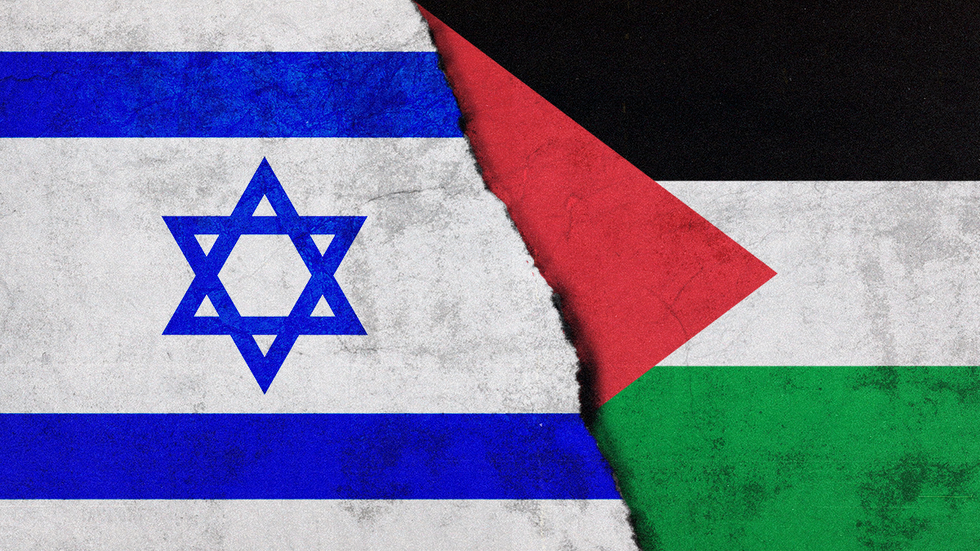 Raad Alkadiri
Raad AlkadiriThe Israel-Palestine crisis is often described in biblical terms: “war in the holy land;” “Muslim v Jew;” or “the new Crusades.”
But while it has always had religious overtones, the ongoing conflict was originally about land: who had a right to it and who didn’t. It pitted Palestinian claims to the right of incumbency against Israeli assertions to the right of settlement and sovereignty.
Sadly, that distinction – land over faith –may no longer be valid, argues Eurasia Group expert Raad Alkadiri.
Nearly 30 years ago, the Oslo Accords laid the foundations for a two-state peace deal between Israel and the Palestinians. The agreement was signed by leaders of the Israeli Labor party and the Palestinian Liberation Organization, led by Yasser Arafat.
To be sure, neither of these groups was shy about espousing maximalist ideas. The PLO had long refused to acknowledge Israel’s right to exist and had used violence to advance its aims. Meanwhile, Israeli Prime Minister Golda Meir famously asserted that there was “no such thing” as the Palestinians.
But in the end, Labor Zionists and Palestinian Liberation fighters were driven chiefly by worldly, nationalist ideas. This left them ideological room to make concessions. That room for compromise underpinned the Oslo Accords.
Sadly, the conflict has since evolved into a clash between religious zealots on both sides, backed by secular right-wing extremists.
To read more about why this happened and what it means for peace prospects after the dust settles in Gaza, click here.
Knowlege is power. Share it.

Refer your friends to our newsletter. We’ll give you a shoutout. All you have to do is click here. They’ll thank you. And we will too.
| Click to email a link to your friends |
Hard Numbers: France faces terror threats, US sanctions Hamas, WFP tries to help quake-plagued Afghans, Cambodian court punishes opposition figure
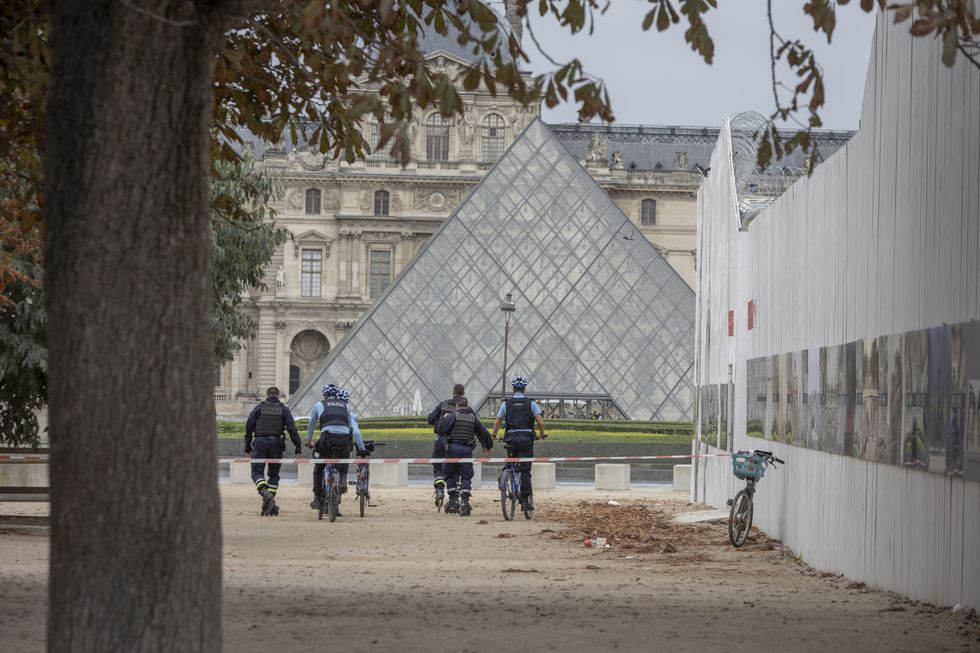 Matthew Kendrick
Matthew Kendrick3: Airports in the French cities of Lyon, Toulouse, and Lille closed and were evacuated on Wednesday after receiving email threats. This followed similar recent evacuations from other tourist attractions like the Louvre Museum and Palace of Versailles. A government spokesperson encouraged French citizens not to allow terror tactics to overwhelm them, urging “Vigilance, yes. Fear, no.”
10: The US Treasury Department on Wednesday sanctioned 10 members of Hamas involved in managing the terrorist network’s global financial operations. Access to any funds held in the United States will be blocked, and they will be prohibited from doing business with American companies and individuals. Treasury officials said they would even clamp down on fundraising done via cryptocurrency.
19 million: The World Food Program is asking donors for $19 million in emergency funds to assist survivors of the series of major earthquakes in western Afghanistan that have killed thousands and flattened entire villages. And that’s just the tip of the iceberg: The WFP urgently needs $400 million to bring food to Afghan communities before winter, when many are cut off from the wider world for weeks at a time as snow and landslides prevent access to mountain towns.
3: A Cambodian court sentenced opposition politician Thach Setha to another three years in prison over a social media post that criticized then-Prime Minister Hun Sen’s policy toward Vietnam. It’s a sensitive subject in Cambodia, as Hun Sen was originally installed in 1985 in a government backed by Vietnam, which had invaded the country to force out the Khmer Rouge in 1979. The Hun Sen regime has been known to target the opposition with legal harassment and imprisonment.
This edition of GZERO Daily was written by Matthew Kendrick, Alex Kliment, and Willis Sparks. Edited by Tracy Moran.
















